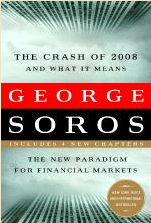IF YOU REMAIN SHELL-SHOCKED FROM THE near-obliteration of your stocks, bonds and retirement nest egg by the Great Recession, then -- metaphorically speaking -- have we got a bunker for you. It's called a bank.
Seriously. Assuming no sudden spike in the rate of inflation, your bank is one of the safest places for your principal, owing to an expanded federal-insurance backstop on savings accounts, retirement accounts, trust accounts and certificates of deposit.
Structure your holdings correctly and, as an individual, you can obtain more than $1 million in coverage per bank. A couple can get about $2 million in coverage per bank. (A synopsis of the rules is at http://www.fdic.gov/deposit/deposits/DIfactsheet.pdf.) This means that should your bank go belly-up, your principal and interest below the insured maximum remains safe. (One danger: Bank rates are so low that if the rate of inflation should best them, you might experience a negative real rate of return.)
PRIOR TO THE NEAR-TOTAL COLLAPSE of our financial industry, the Federal Deposit Insurance Corp. covered no more than $100,000 for savings, retirement accounts and irrevocable trust and revocable trust accounts. This added up to a grand total of $400,000 per person per bank and $800,000 for couples. Now, however, until Dec. 31, 2013, these accounts are insured for as much as $250,000 per person, per account. (The FDIC has a calculator on its site called EDIE, or Electronic Deposit Insurance Estimator, to help determine whether you are fully covered at your bank:https://www.fdic.gov/edie/index.html.)
Congress allowed the temporary increase in deposit coverage to avert runs at weakened banks and to restore confidence in the overall system. The new policy seems to be working. Deposits during the first quarter climbed by $82.4 billion, or 1.7%, to $7.5 trillion. There are more than 8,200 financial institutions in the U.S. backed by the Federal Deposit Insurance Corp.
Continue reading - http://online.barrons.com/article/SB124727466034526301.html


